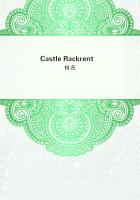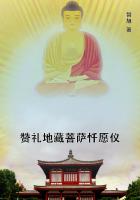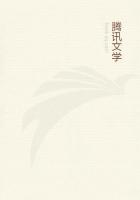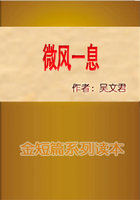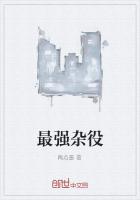With the old familiar landmarks of life obliterated in this wholesale manner, it is to be doubted whether one of us, placed in the midst of such a civilization, would know himself. He certainly would derive but scanty satisfaction from the recognition if he did.
Even Nirvana might seem a happy limbo by comparison. With a communal, not to say a cosmic, birthday, and a conventional wife, he might well deem his separate existence the shadow of a shade and embrace Buddhism from mere force of circumstances.
Further investigation would not shake his opinion. For a far-oriental career is thoroughly in keeping with these, its typical turning-points.
From one end of its course to the other it is painfully impersonal.
In its regular routine as in its more salient junctures, life presents itself to these races a totally different affair from what it seems to us. The cause lies in what is taken to be the basis of socio-biology, if one may so express it.
In the Far East the social unit, the ultimate molecule of existence, is not the individual, but the family.
We occidentals think we value family. We even parade our pretensions so prominently as sometimes to tread on other people's prejudices of a like nature. Yet we scarcely seem to appreciate the inheritance. For with a logic which does us questionable credit, we are proud of our ancestors in direct proportion to their remoteness from ourselves, thus permitting Democracy to revenge its insignificance by smiling at our self-imposed satire. To esteem a man in inverse ratio to the amount of remarkable blood he has inherited is, to say the least, bathetic. Others, again, make themselves objectionable by preferring their immediate relatives to all less connected companions, and cling to their cousins so closely that affection often culminates in matrimony, nature's remonstrances notwithstanding. But with all the pride or pleasure which we take in the members of our particular clan, our satisfaction really springs from viewing them on an autocentric theory of the social system. In our own eyes we are the star about which, as in Joseph's dream, our relatives revolve and upon which they help to shed an added lustre. Our Ptolemaic theory of society is necessitated by our tenacity to the personal standpoint. This fixed idea of ours causes all else seemingly to rotate about it. Such an egoistic conception is quite foreign to our longitudinal antipodes. However much appearances may agree, the fundamental principles upon which family consideration is based are widely different in the two hemispheres.
For the far-eastern social universe turns on a patricentric pivot.
Upon the conception of the family as the social and political unit depends the whole constitution of China. The same theory somewhat modified constitutes the life-principle of Korea, of Japan, and of their less advanced cousins who fill the vast centre of the Asiatic continent. From the emperor on his throne to the common coolie in his hovel it is the idea of kinship that knits the entire body politic together. The Empire is one great family; the family is a little empire.
The one developed out of the other. The patriarchal is, as is well known, probably the oldest political system in the world. All nations may be said to have experienced such a paternal government, but most nations outgrew it.
Now the interesting fact about the yellow branch of the human race is, not that they had so juvenile a constitution, but that they have it; that it has persisted practically unchanged from prehistoric ages.
It is certainly surprising in this kaleidoscopic world whose pattern is constantly changing as time merges one combination of its elements into another, that on the other side of the globe this set should have remained the same. Yet in spite of the lapse of years, in spite of the altered conditions of existence, in spite of an immense advance in civilization, such a primitive state of society has continued there to the present day, in all its essentials what it was when as nomads the race forefathers wandered peacefully or otherwise over the plains of Central Asia. The principle helped them to expand; it has simply cramped them ever since. For, instead of dissolving like other antiquated views, it has become, what it was bound to become if it continued to last, crystallized into an institution. It had practically reached this condition when it received a theoretical, not to say a theological recognition which gave it mundane immortality. A couple of millenniums ago Confucius consecrated filial duty by making it the basis of the Chinese moral code. His hand was the finishing touch of fossilification.
For since the sage set his seal upon the system no one has so much as dreamt of changing it. The idea of confuting Confucius would be an act of impiety such as no Chinaman could possibly commit. Not that the inadmissibility of argument is due really to the authority of the philosopher, but that it lies ingrained in the character of the people. Indeed the genius of the one may be said to have consisted in divining the genius of the other. Confucius formulated the prevailing practice, and in so doing helped to make it perpetual.
He gave expression to the national feeling, and like expressions, generally his, served to stamp the idea all the more indelibly upon the national consciousness.
In this manner the family from a natural relation grew into a highly unnatural social anachronism. The loose ties of a roving life became fetters of a fixed conventionality. Bonds originally of mutual advantage hardened into restrictions by which the young were hopelessly tethered to the old. Midway in its course the race undertook to turn round and face backwards, as it journeyed on.
Its subsequent advance could be nothing but slow.
The head of a family is so now in something of a corporeal sense.
From him emanate all its actions; to him are responsible all its parts.


